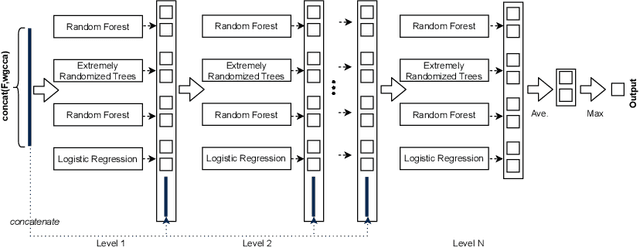Prabath Abeysekara
Data-driven Trust Bootstrapping for Mobile Edge Computing-based Industrial IoT Services
Aug 18, 2025



Abstract:We propose a data-driven and context-aware approach to bootstrap trustworthiness of homogeneous Internet of Things (IoT) services in Mobile Edge Computing (MEC) based industrial IoT (IIoT) systems. The proposed approach addresses key limitations in adapting existing trust bootstrapping approaches into MEC-based IIoT systems. These key limitations include, the lack of opportunity for a service consumer to interact with a lesser-known service over a prolonged period of time to get a robust measure of its trustworthiness, inability of service consumers to consistently interact with their peers to receive reliable recommendations of the trustworthiness of a lesser-known service as well as the impact of uneven context parameters in different MEC environments causing uneven trust environments for trust evaluation. In addition, the proposed approach also tackles the problem of data sparsity via enabling knowledge sharing among different MEC environments within a given MEC topology. To verify the effectiveness of the proposed approach, we carried out a comprehensive evaluation on two real-world datasets suitably adjusted to exhibit the context-dependent trust information accumulated in MEC environments within a given MEC topology. The experimental results affirmed the effectiveness of our approach and its suitability to bootstrap trustworthiness of services in MEC-based IIoT systems.
Cloned Identity Detection in Social-Sensor Clouds based on Incomplete Profiles
Nov 02, 2024



Abstract:We propose a novel approach to effectively detect cloned identities of social-sensor cloud service providers (i.e. social media users) in the face of incomplete non-privacy-sensitive profile data. Named ICD-IPD, the proposed approach first extracts account pairs with similar usernames or screen names from a given set of user accounts collected from a social media. It then learns a multi-view representation associated with a given account and extracts two categories of features for every single account. These two categories of features include profile and Weighted Generalised Canonical Correlation Analysis (WGCCA)-based features that may potentially contain missing values. To counter the impact of such missing values, a missing value imputer will next impute the missing values of the aforementioned profile and WGCCA-based features. After that, the proposed approach further extracts two categories of augmented features for each account pair identified previously, namely, 1) similarity and 2) differences-based features. Finally, these features are concatenated and fed into a Light Gradient Boosting Machine classifier to detect identity cloning. We evaluated and compared the proposed approach against the existing state-of-the-art identity cloning approaches and other machine or deep learning models atop a real-world dataset. The experimental results show that the proposed approach outperforms the state-of-the-art approaches and models in terms of Precision, Recall and F1-score.
Decentralised Traffic Incident Detection via Network Lasso
Feb 28, 2024Abstract:Traffic incident detection plays a key role in intelligent transportation systems, which has gained great attention in transport engineering. In the past, traditional machine learning (ML) based detection methods achieved good performance under a centralised computing paradigm, where all data are transmitted to a central server for building ML models therein. Nowadays, deep neural networks based federated learning (FL) has become a mainstream detection approach to enable the model training in a decentralised manner while warranting local data governance. Such neural networks-centred techniques, however, have overshadowed the utility of well-established ML-based detection methods. In this work, we aim to explore the potential of potent conventional ML-based detection models in modern traffic scenarios featured by distributed data. We leverage an elegant but less explored distributed optimisation framework named Network Lasso, with guaranteed global convergence for convex problem formulations, integrate the potent convex ML model with it, and compare it with centralised learning, local learning, and federated learning methods atop a well-known traffic incident detection dataset. Experimental results show that the proposed network lasso-based approach provides a promising alternative to the FL-based approach in data-decentralised traffic scenarios, with a strong convergence guarantee while rekindling the significance of conventional ML-based detection methods.
Deep Edge Intelligence: Architecture, Key Features, Enabling Technologies and Challenges
Oct 24, 2022

Abstract:With the breakthroughs in Deep Learning, recent years have witnessed a massive surge in Artificial Intelligence applications and services. Meanwhile, the rapid advances in Mobile Computing and Internet of Things has also given rise to billions of mobile and smart sensing devices connected to the Internet, generating zettabytes of data at the network edge. The opportunity to combine these two domains of technologies to power interconnected devices with intelligence is likely to pave the way for a new wave of technology revolutions. Embracing this technology revolution, in this article, we present a novel computing vision named Deep Edge Intelligence (DEI). DEI employs Deep Learning, Artificial Intelligence, Cloud and Edge Computing, 5G/6G networks, Internet of Things, Microservices, etc. aiming to provision reliable and secure intelligence services to every person and organisation at any place with better user experience. The vision, system architecture, key layers and features of DEI are also detailed. Finally, we reveal the key enabling technologies and research challenges associated with it.
Privacy-Aware Identity Cloning Detection based on Deep Forest
Oct 21, 2021



Abstract:We propose a novel method to detect identity cloning of social-sensor cloud service providers to prevent the detrimental outcomes caused by identity deception. This approach leverages non-privacy-sensitive user profile data gathered from social networks and a powerful deep learning model to perform cloned identity detection. We evaluated the proposed method against the state-of-the-art identity cloning detection techniques and the other popular identity deception detection models atop a real-world dataset. The results show that our method significantly outperforms these techniques/models in terms of Precision and F1-score.
 Add to Chrome
Add to Chrome Add to Firefox
Add to Firefox Add to Edge
Add to Edge